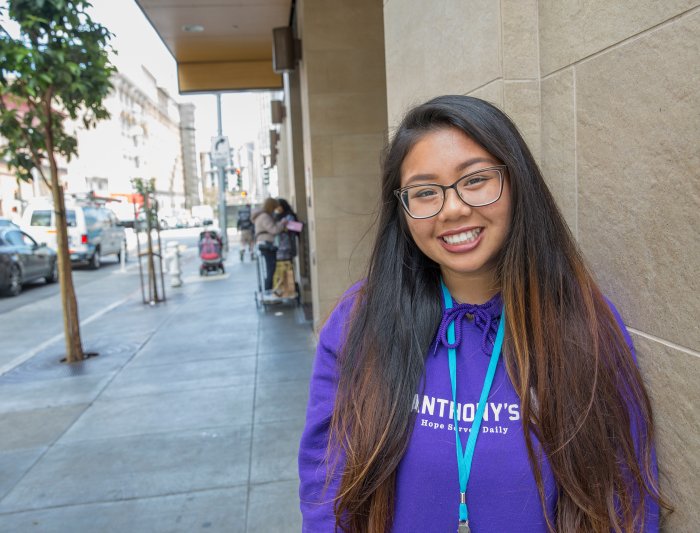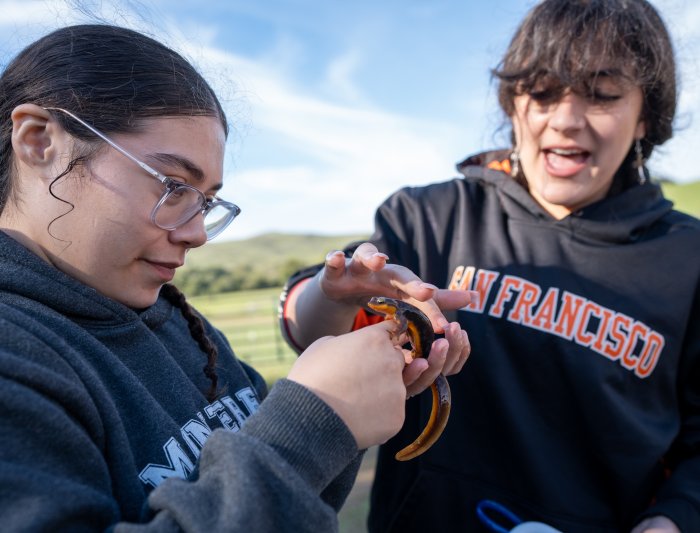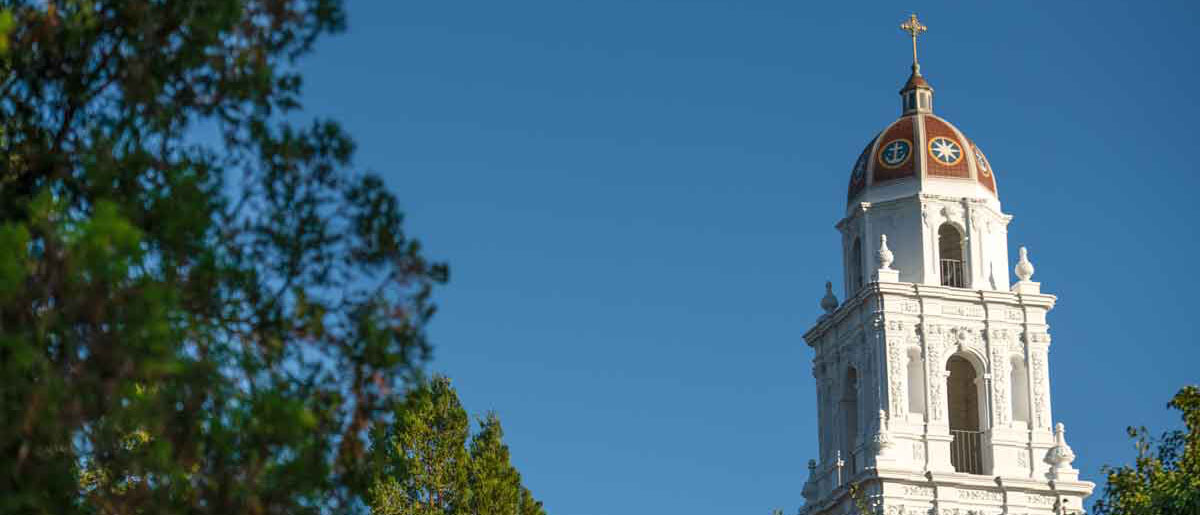Core Curriculum

SMC CORE CURRICULUM
The Core Curriculum consists of skills, knowledge, and values that provide the foundation of student learning at Saint Mary's College. It is an intentional, developmental, and integrated program of study in four broad intellectual areas: Habits of Mind, Pathways to Knowledge, Theological Understanding, and Engaging the World.
Academic Changes and Transition Plan
- All students who started SMC prior Fall 2022 and transfer students who started in Fall 2022 will complete the Core they have started (i.e., the current Core).
- First-Year students who entered SMC in or after Fall 2022 will complete the new Core.
Requirements
Habits of Mind offers an integrative and developmental curriculum to foster students' core competencies in written communication, critical thinking and research practices, and shared inquiry as a form of oral communication, as well as aptitudes toward lifelong learning.
- Collegiate Seminar
- Sequence of three courses: SEM150, SEM250, SEM350
- Transfer students will complete: SEM327 in lieu of SEM150 and SEM250 as separate courses.
- Writing
- Sequence of two WRIT courses and a Writing in the Discipline (WID) course completed in the major: WRIT100s, WRIT 200s, and a WID course in the major.
- Learn more about WID designation guidelines and resources.
- Transfer students with IGETC will have both WRIT courses completed upon entry to SMC.
- Sequence of two WRIT courses and a Writing in the Discipline (WID) course completed in the major: WRIT100s, WRIT 200s, and a WID course in the major.
- January Term
- Students complete two JAN courses at 3 Carnegie units in each course. Students start with a JAN course in their first year, and take another JAN course sometime in the second through fourth year.
Pathways to Knowledge (PtK) prepares students for their major field of study by providing the foundational knowledge and skills. Students who complete IGETC will have this area completed upon entry to SMC.
PtK requirements include:
Math and Science
Through the mathematical requirement, students will develop critical thinking skills to evaluate the validity of mathematical premises and to argue deductively from them. Through the science requirement, students will learn to argue inductively by collecting, analyzing, and interpreting empirical data in a systematic way in order to test and revise hypotheses about the natural and physical world.
- Math = 1 course (3 Carnegie units)
- Science = 1 lecture + lab course (4 Carnegie units)
Social Science
Students will learn social science-based theories, methods, or frameworks to explore the richness and complexity of human behaviors, organizations, and social institutions. They will do this by developing the knowledge base and skills required to engage in a systematic exploration of human society and its socio-cultural and organizational institutions using social scientific reasoning approaches.
- 1 Course (3 Carnegie units)
Arts and Humanities
Students will learn how to critically analyze human artifacts, narratives, experiences, or artistic forms. They will also produce artifacts using appropriate outlets. Students will take either a single course that meets both Analysis and Practice or separate courses.
- 1-2 courses (4 Carnegie units)
Second Language Proficiency
Students must demonstrate Level 2 proficiency in a language other than English. Ways to complete this requirement include:
- By completing the second semester-long course in the sequence of courses in the same language other than English at an accredited postsecondary institution. American Sign Language is explicitly permitted.
- By completing with a grade of C- or better each year the third year of the same language other than English in high school, including American Sign Language.
- By passing a proficiency exam in a proctored environment with an assessment instrument approved by the Department of World Languages and Cultures or the Department of Classical Languages as appropriate.
- Via an AP exam score of 3 or higher in a language other than English.
- Via an IB higher level exam score of 5 or higher in a language other than English.
- Via a TOEFL score consistent with current enrollment standards for international students who are non-native speakers of English.
Students will engage with the foundational ideas and texts of the Catholic Christian tradition, as well as have the opportunity to deepen or broaden their knowledge through further study of aspects of the Catholic faith or other theological traditions, beliefs, or practices.
- Christian Foundations = 1 course (3 Carnegie units)
- Theological Explorations = 1 course (3 Carnegie units)
Engaging the World has three fields of requirement:
Identity, Power, and Equity in the United States
Students will learn to examine different forms of diversity and study how identities work together and against each other to produce the lived experience. They will also learn how power functions in communities and the workplace and what it means to promote equity. They will accomplish this by critically examining social categories of identities, such as race, ethnicity, gender, sexuality, class, (dis)ability, immigration status, language, and/or religion in the U.S.
- 1 course (3 Carnegie units)
Global Issues and Perspectives
Students will learn to understand global issues by examining culture, history, power relations and dynamics, (in)justice and (in)equity, and the issues of dependence and interdependence between parts of the world. They will accomplish this by engaging in perspective-taking, inclusive of non-dominant or non-U.S. perspectives.
- 1 course (3 Carnegie units)
Engaged Learning
Students will experientially learn to put academic content to practice while working collaboratively with their community partners. Students will also consider the immediate or long-term impact of their work on themselves, the community partner, and society more broadly.
- 1 course (1 Carnegie unit)
Coming soon...
Requirements (Previous Core)
Habits of Mind offers an integrative and developmental curriculum to foster students' core competencies in written communication, critical thinking and research practices, and shared inquiry as a form of oral communication, as well as aptitudes toward lifelong learning.
- Collegiate Seminar
- Sequence of four courses
- Writing
- Sequence of two courses and the Writing in the Discipline course completed in the major
- January Term
- Four courses offered in January
Pathways to Knowledge prepares students for their major field of study by providing the foundational knowledge and skills. Requirements include:
Mathematical and Scientific Understanding
Through the mathematical requirement, students will develop critical thinking skills to evaluate the validity of mathematical premises and to argue deductively from them. Through the science requirement, students will learn to argue inductively by collecting, analyzing, and interpreting empirical data in a systematic way in order to test and revise hypotheses about the natural and physical world.
- Math = 1 course
- Science = 1 lecture + lab course
Social Historical Cultural Understanding
Students will learn social science-based theories, methods, or frameworks to explore the richness and complexity of human behaviors, organizations, and social institutions. They will do this by developing the knowledge base and skills required to engage in a systematic exploration of human society and its socio-cultural and organizational institutions using social scientific reasoning approaches.
- Two courses
Artistic Understanding
Students will learn how to critically analyze human artifacts, narratives, experiences, or artistic forms. They will also produce creative artifacts using appropriate outlets. Students will take either a single course that meets both Creative Practice and Arts or Humanities or separate courses.
- Two analysis courses
- One (.25 credit) practice course
Theological Understanding
Students will engage with the foundational ideas and texts of the Catholic Christian tradition, as well as have the opportunity to deepen or broaden their knowledge through further study of aspects of the Catholic faith or other theological traditions, beliefs, or practices.
- Christian Foundations (1 course)
- Theological Explorations (1 course)
.
Second Language Proficiency
Students must demonstrate Level 3 proficiency in a language other than English. Students completing the old Core who have completed level II can satisfy their level III requirement by taking a GIP-designated course that is numbered 300+. This is allowed only for students on the old Core, and they should consult with their advisors to see if this option is appropriate for them.
Engaging the World has four fields of requirement:
American Diversity
Students will learn to examine different forms of diversity and study how identities work together and against each other to produce the lived experience. They will also learn how power functions in communities and the workplace and what it means to promote equity. They will accomplish this by critically examining social categories of identities, such as race, ethnicity, gender, sexuality, class, (dis)ability, immigration status, language, and/or religion in the U.S.
- 1 course
Global Perspectives
Students will learn to understand global issues by examining culture, history, power relations and dynamics, (in)justice and (in)equity, and the issues of dependence and interdependence between parts of the world. They will accomplish this by engaging in perspective-taking, inclusive of non-dominant or non-U.S. perspectives.
- 1 course
Community Engagement
Students will experientially learn to put academic content to practice while working collaboratively with their community partners. Students will also consider the immediate or long-term impact of their work on themselves, the community partner, and society more broadly.
- 1 (.25 credit) course
The Common Good
- 1 course
Signature Programs
Discover more about these unique programs.



